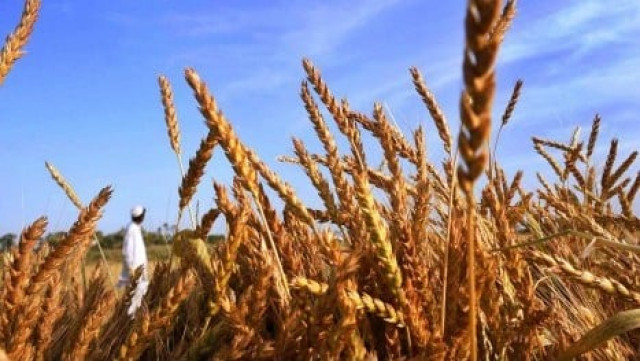Cabinet questions no action against hoarders
Move may lead to another food security issue in country

Cabinet members have raised questions over exempting wheat importers from penal action for allegedly being involved in hoarding of the imported commodity, which may lead to another food security issue in the country.
The government had allowed private sector the import of wheat in a bid to increase supply of the commodity in the local market to break the cartel of flour millers that had increased prices manifold.
The government had initiated an inquiry into the conduct of sugar and wheat flour millers, which found that they were involved in hoarding to increase prices. However, after the inquiry report, the prices of both commodities continued to rise and the government was forced to allow the private sector to import wheat to control the soaring prices.
Sources told The Express Tribune that the cabinet, in a recent meeting, had taken up the issue of wheat import by the private sector.
Deliberations on the periodic report on wheat issues and implementation status of ECC decisions were initiated and cabinet members questioned as to why exemption from the anti-hoarding act was being extended to importers.
Following this question, Adviser to PM on Finance and Revenue Dr Abdul Hafeez Shaikh clarified that there was a shortfall of 1.5 to 2 million tons (MT) of wheat in the country, which needed to be bridged through imports. Since the international wheat prices were higher than the domestic rates, it was imperative to facilitate the importers, as far as possible, to make it an economically viable venture.
Responding to a question on whether the government of Sindh had started release of its wheat stock, the minister for national food security and research informed the meeting that he had written twice to the Sindh chief minister on July 15 and 21, 2020.
The members reached a consensus that the Sindh government should be urged to immediately start releasing its stock as any delay would negatively affect wheat and flour prices in Sindh as well as Punjab.
It was also suggested that the cabinet may advise the government of Sindh to waive excise and tax charges on the import value of wheat.
To a query from the prime minister regarding the main drivers of increase in wheat prices when sufficient stocks were available in the country, the food ministry explained that the shortfall had stoked speculation and market volatility.
A mix of hoarding, smuggling, absence of buffer stocks and higher international prices all contributed to the price hike.
However, with the arrival of imported wheat, market prices should stabilise. The first shipment is expected to reach Karachi in September 2020.
It was pointed out that the public sector should also start importing together with the private sector so that the latter could not monopolise and determine prices.
The members suggested various measures including a strict clampdown on hoarders, import by the public sector, implementation of 80:20 ratio by flour mills, etc.
After thorough deliberations, the cabinet resolved that being a staple diet of the common man, the shortage of wheat and flour and increase in their prices would not be allowed in any circumstances, and all possible measures would be taken to ensure market stability.
Published in The Express Tribune, August 1st, 2020.
Like Business on Facebook, follow @TribuneBiz on Twitter to stay informed and join in the conversation.


















COMMENTS
Comments are moderated and generally will be posted if they are on-topic and not abusive.
For more information, please see our Comments FAQ